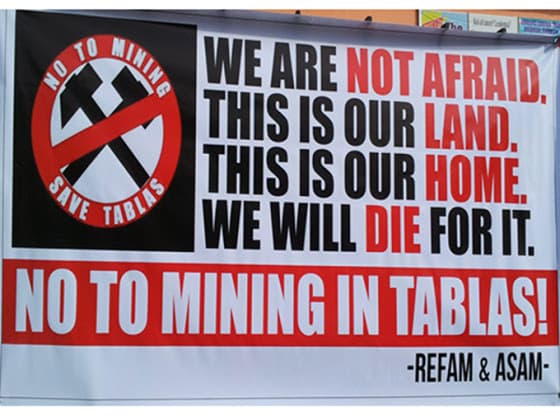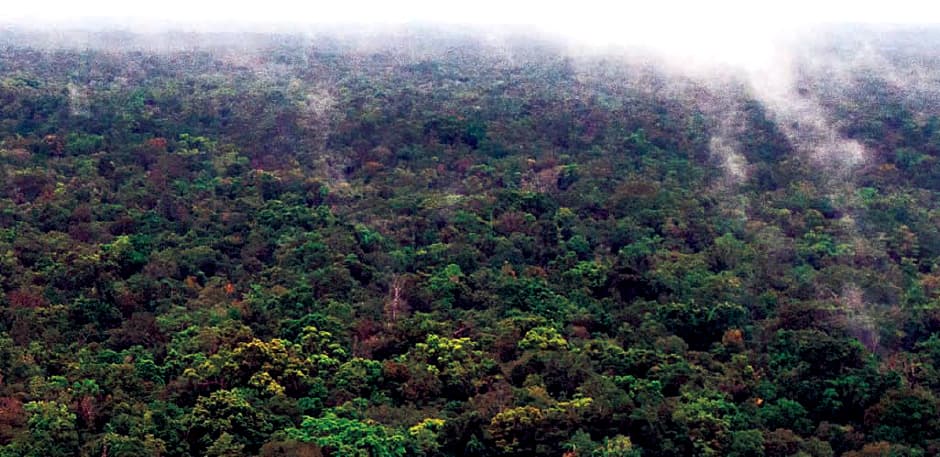What will happen to 5.2 million hectares of SABL land?
Martyn Namorong

This ambiguity of the law means that it is uncertain whether customary landowners will ever get back the title to their land given the current situation. Over 5.2 million hectares of land has been Gazetted as SPABLs, the largest being 2 million hectares of land in the Western Province.
The Commission of Inquiry has thus concentrated on the acquisition process as part of its inquiries. The key determination is whether a proper land investigation process was done and whether customary landowners had given informed consent.
Lands officers in East Sepik have been exposed has incompetent during the inquiry. The Customary Lands Officer for East Sepik wasn’t aware of the process that led to the acquisition of nearly 300 000 hectares of customary land in the Province. A former Lands Officer, Francis Warren, admitted giving wrong advice to the landowners of Turubu SABL. When Commissioner Warren asked Mr. Warren if he knew about section 102 of the Land Act, Mr. Warren was unable to answer.
Provincial Forest officer for East Sepik, Mr. Richard Kali also highlighted to the Commission that there was lack of coordination between line agencies. For example, when the National Forest Authority issued Forest Clearance Authorities (FCAs), the Department of Agriculture and Livestock did not monitor whether the land that was cleared was being developed for agriculture. Consequently, as one travels through the SABL sites; there is a lot of logging going on and very little agricultural activity. In most cases, the seedlings have been planted recently, probably in response to the creation of the Commission of Inquiry.
Many landowner companies have signed agreements that are largely in favour of the exploiters. Landowners in Marrienberg have not had schools and clinics built or any other development activities. They say that this is because there was no provision for such benefits in the agreement with Brilliant Investments. Meanwhile, the log pond at Marrienberg is filled with piles of expensive Kwila for export.
Several years later and with millions of dollars worth of logs exported, landowner leaders like Moses Gawi from Marrienberg still back the exploiters and say these are early day for developmental benefits for his people. Meanwhile, back in the rainforests, communities live their traditional lives on land that they once used to own by virtue of their cultural heritage. They seem oblivious to the fact that they are now squatters who could be evicted by the lease holder.

From Turubu in the coast to further inland at Nungwaia-Bongos; they came to Wewak to tell Commissioner Mirou that they want their land returned. “Graun em Laif” – LAND IS LIFE- reads a banner held by protesting landowners. The landowners also presented a petition to the Commission of Inquiry which the Commission accepted as evidence.
One can understand their sentiments. The land that their forefathers gave their lives to protect and their future generations’ lives depend on has been squandered by short-sighted landowner leaders. Given the gravity of the situation, SABLs are now an election issue in the East Sepik Province as landowners accuse serving politicians of involvement. Indeed, the Nungwaia-Bongos project in Ambunti-Drekikir was backed by the local MP, Mr. Tony Aimo, who is also a landowner in the SABL area.
Landowners wanting to get back their land will have to vote in MPs who may make retrospective changes to the Land Act and have the leases revoked. Alternatively, a suggestion by counsel assisting the Inquiry, Mr. Ketan, is that landowners take a majority stake in the projects. Water-tight contracts that place a huge burden of liability on landowner companies make it difficult to simply kick-out the Vampire Capitalists.
Given the projected rise in the value of the Kina due to LNG exports, it seems highly unlikely that any of these agriculture projects would be viable, given the exchange rate fluctuation. This land grab under the pretext of agriculture, seems to be an excuse to bypass strict Forestry Regulations that have come into place post the Barnet Inquiry. These Vampire Capitalists are having a field day sucking out Papua New Guinea’s valuable natural resources.
